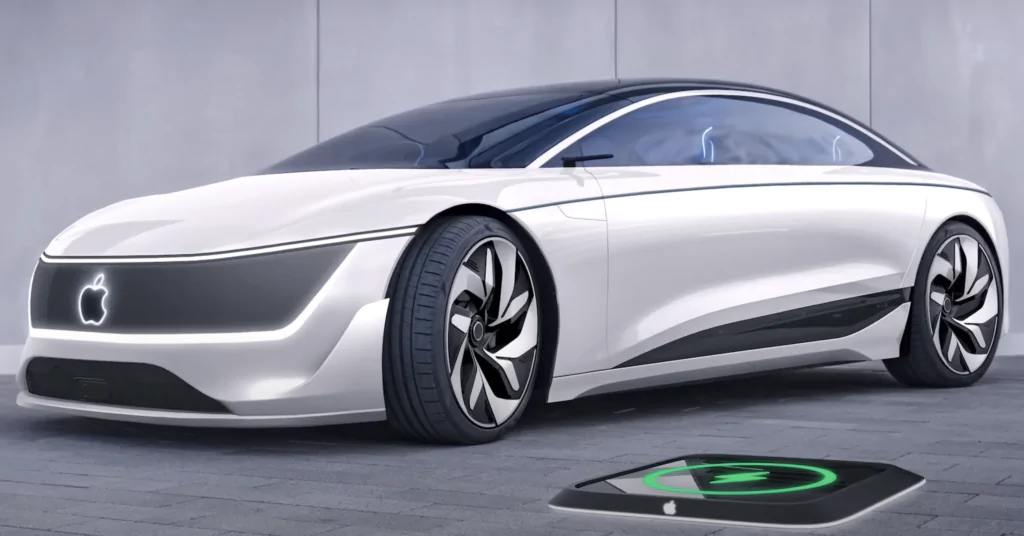In 2014, Apple embarked on an ambitious journey to revolutionize the automotive industry, aiming to replicate the unprecedented success it achieved with the iPhone. The company’s decision to enter the electric car market was met with both excitement and skepticism, as it marked Apple’s first major foray into a new industry in over a decade. With a vision of creating a groundbreaking vehicle that combined cutting-edge technology with sleek design, Apple set out to develop an electric car that would not only rival but surpass, the offerings of established automakers.
The Vision Unfolds: Challenges and Progress
The project, internally known as the “Apple Car,” initially showed promise, with rumors swirling about Apple’s plans to develop a car with true self-driving capability. However, as the years went by, the project encountered numerous challenges and setbacks. Progress was uneven, and the company struggled to overcome technical hurdles and regulatory roadblocks. Despite these challenges, Apple remained committed to its vision of disrupting the automotive industry and transforming the way people think about transportation.
Shifting Priorities: From Full Autonomy to Driver-Assist Systems
As the project evolved, Apple made the strategic decision to scale back its ambitions for the Apple Car. Instead of pursuing full autonomy, the company shifted its focus to developing a driver-assist system that was more in line with what other automakers, such as Ford, General Motors, and Tesla, were already offering. While this decision was met with disappointment by some, it reflected Apple’s pragmatic approach to product development and its willingness to adapt to changing market conditions.
The End of an Era: Apple Cancels the Electric Car Project
After a decade of development and speculation, Apple made the surprising announcement that it was canceling work on its electric car project. The move drew the curtain on a plan that had once held the promise of transforming the automotive industry and propelling Apple into a new era of innovation. The decision to cancel the project was undoubtedly a difficult one for Apple, but it reflected the harsh realities of the electric car market, which had seen a significant drop in demand amid shifting consumer preferences and regulatory challenges.
A New Direction: Apple’s Continued Presence in the Auto Industry
Despite the cancellation of the electric car project, Apple made it clear that it was not turning away from the auto industry altogether. Instead, the company announced plans to roll out a next-generation Apple CarPlay system in collaboration with Porsche and Aston Martin. This new system promised more elaborate displays and greater integration with vehicle systems, signaling Apple’s continued commitment to shaping the future of transportation through innovative technology.
Impact on Employees: Layoffs and Transitions
The cancellation of the Apple Car project inevitably had repercussions for the employees who had dedicated years of their lives to its development. Many hardware engineers and car designers who were part of the Apple Car team faced layoffs, while others were able to transition to other divisions within the company. While the layoffs were undoubtedly a difficult and painful experience for those involved, they reflected Apple’s need to reallocate resources and focus on its core business priorities.
Behind the Scenes: Leadership Changes and Challenges
Behind the scenes, the Apple Car project underwent multiple leadership changes and challenges. In 2016, project lead Steve Zadesky departed the company, signaling the first hints of trouble with the project. Subsequent leadership changes saw the project’s development shift to John Giannandrea, Apple’s AI chief, with Doug Field overseeing day-to-day operations. These leadership changes, coupled with the challenges of developing a groundbreaking product in a highly competitive industry, undoubtedly contributed to the project’s ultimate demise.
The Larger Context: Industry Trends and Market Realities
The cancellation of the Apple Car project occurred against the backdrop of broader industry trends and market realities. Global automakers, including EV market leader Tesla, had begun to pull back on investments in electric vehicles, with some shifting their focus to hybrids instead of fully battery-powered cars. This shift in industry priorities, coupled with the challenges faced by Apple in developing a competitive electric car, ultimately led to the project’s cancellation.
Conclusion: Lessons Learned and the Road Ahead
The cancellation of Apple’s electric car project marked the end of a decade-long journey filled with innovation, challenges, and ultimately, disappointment. Despite the setback, Apple’s foray into the automotive industry demonstrated the company’s willingness to take risks and push the boundaries of technology. As Apple regroups and refocuses its efforts, the lessons learned from the Apple Car project will undoubtedly shape the company’s future endeavors and its ongoing quest to revolutionize the way we live, work, and travel.

